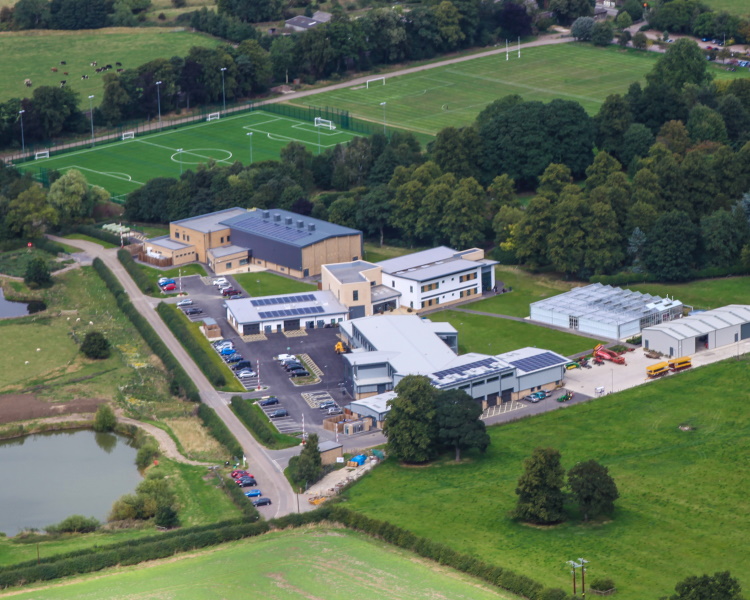T-Levels

Applications for our T-level programmes are now open!
T-Levels have been developed in collaboration with employers and businesses to ensure the course content meets the needs of industry, in addition to preparing students for work or further study. They are Level 3 courses, designed as the next stage of learning after your GCSEs, and each one is equivalent to 3 A-Levels.
T-Levels will offer students a mixture of classroom learning (80%) and ‘on-the-job’ experience during a meaningful industry placement of at least 315 hours (approximately 45 days) (the other 20%).
These qualifications will provide the knowledge and experience needed to open the door into skilled employment, further study or higher apprenticeships.
For those who don't meet the entry requirements for their chosen T Level, we offer 1-year Transition programmes to prepare students for progression onto a T Level.
SMB College Group has been chosen to offer T-Levels in:
Stephenson Campus
Brooksby Campus
- T Level in Education & Childcare - Early Years Educator
- T Level in Creative Media, Broadcast & Production
- T Level in Agriculture, Land Management & Production (Livestock Production)
- T-Level in Animal Management & Behaviour
We also offer the following T Level Foundation Years:
T Level Foundation Year in Creative Media
T Level Foundation Year in Education and Childcare
FAQs
-
Who can study T Levels?
T-Levels can be studied by 16-18 year olds after finishing their GCSEs.
-
What are the entry requirements?
Our T-Level courses require you to achieve five GCSEs at grade 4/5 or above, including English and Maths. For those wishing to study Healthcare Science, you must also achieve a grade 4 or above in GCSE Science.
-
How will I be graded?
Students who complete their T-Level will receive an overall grade of Pass, Merit, Distinction or Distinction*. They will achieve a nationally recognised certificate which will show their overall grade and a breakdown of what they have achieved.
The T-Level certificate will include:
- An overall grade (shown as Pass, Merit, Distinction or Distinction*)
- A separate grade for the core component, using A* to E
- A separate grade for each occupational specialism, shown as Pass, Merit or Distinction
It will also include confirmation that the student has:
- Met the minimum requirements for English and Maths qualifications
- Completed the industry placement
- Met any additional mandatory requirements
-
Are there any fees?
No, because students are aged 16-18 these courses are fully funded.
-
What are my progression options?
T-Levels will provide several progression options to students. These include skilled employment, an apprenticeship, or Higher Education.
To help T-Level students access Higher Education, UCAS tariff points have been allocated to T-Levels.
-
Can I go to University after a T Level course?
One T-Level is equivalent to three A-levels and has the same UCAS points, so you can progress into just as you would after your A-levels, more information on UCAS points can be found here on the GOV.UK website.
-
How are T Levels different to A Levels?
T-Level courses are backed by businesses, they’ve been designed with employers to develop the knowledge, attitude and practical skills young people need. One T-Level is equivalent to three A-levels and has the same UCAS points. During your T-Level you will undergo industry placement.
-
How does my placement work?
You will spend 80% of the course in the classroom, learning the essential skills that your employees need and the other 20% is a meaningful industry placement, where you put these skills into action.
Your industry placement will last at least 315 hours or approximately 45 days.
-
Am I guaranteed a job at the end of my T Level?
T-Levels are designed to prepare students for the world of work but your next step options remain open at the end of the course. Students aren’t guaranteed a job but they will be well prepared for the world of work or further study.
-
What do I need to know as an employer?
T Level industry placements are a free government scheme so you don't need to pay to take on a T Level student for a placement. There may be certain business costs, like time invested in planning, training and supervising, and you can choose to pay the student if you wish.
Taking on a student for their industry placement can have huge benefits for your company, such as:
- The opportunity to train grassroots talent to suit your business needs.
- A solution to entry-level job shortages.
- Minimise the cost of recruitment by working with a local college.
- Develop the mentoring and management skills of your team.
- An invaluable source of new ideas and a fresh perspective.
SMB College Group will offer support for both employer and student throughout the industry placement.


